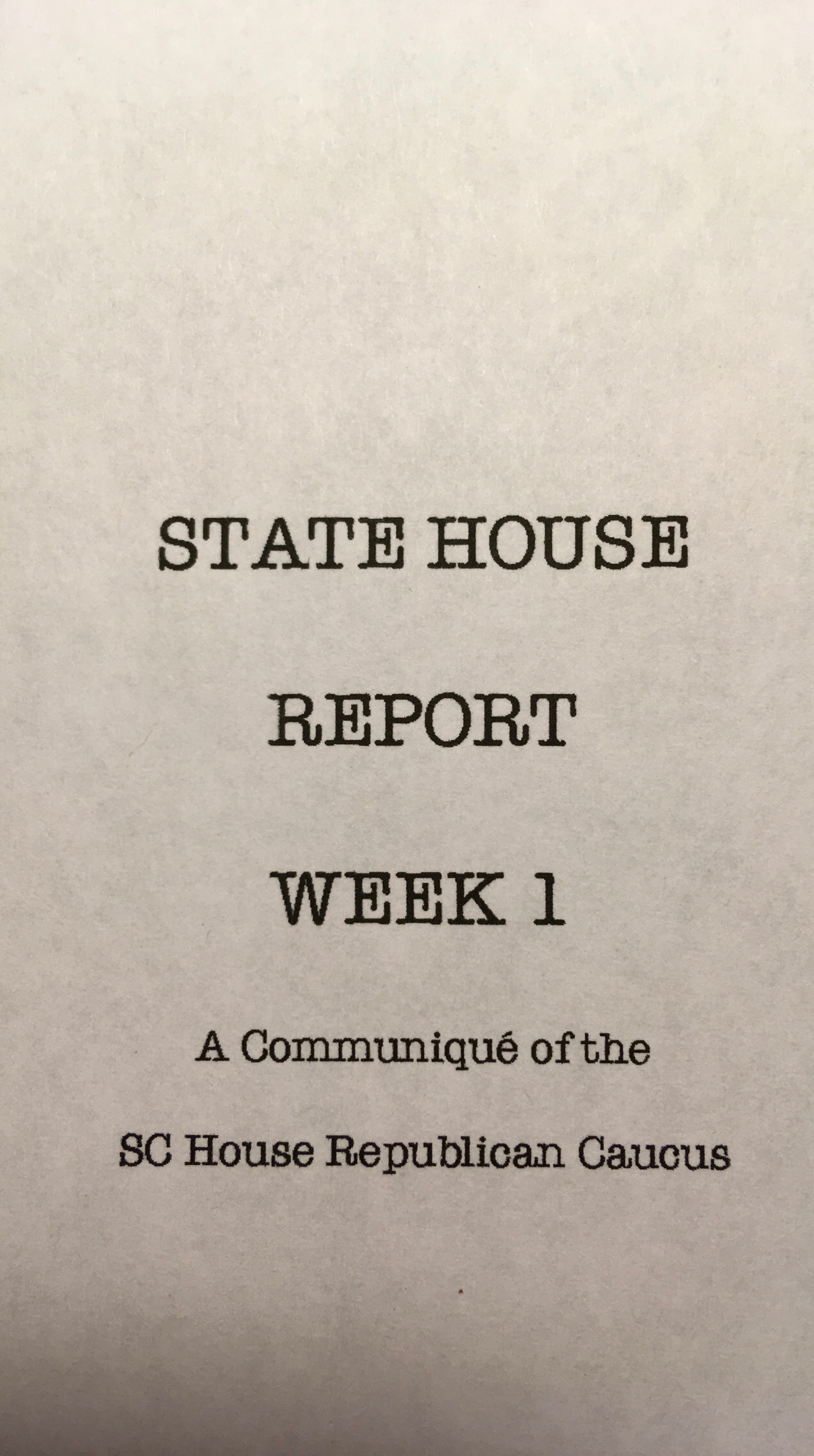January 9th marked the beginning of the 2nd regular session of the 122nd South Carolina General Assembly. We returned to Columbia with a long list of issues to tackle and 18 weeks to complete the work of the people.
House Republicans issued a Business Plan for 2018 focusing on a broad range of issues. Each item contained in our business plan directly affects the lives of South Carolinians and will require serious debate.
Since voters gave Republicans control of the House in 1994, significant legislative achievements have originated with House Republicans. Items such as: infrastructure improvement, workers’ compensation reform, property tax reduction, strengthening immigration laws, ethics reform and elimination of the Budget and Control Board, among many others.
We have a history of working quickly yet thoroughly and plan to do so again in 2018. This year’s initiatives include:
Ratepayer Protection Package
Summary: Based upon extensive study and review by the House Utility Ratepayer Protection Committee, the legislative package lowers current rates and prevents consumers from paying a single penny more for the costly failed project. Additionally, the bills modify existing law and put proposals in place that advocate for South Carolina ratepayers.
Retirement System Reform Phase II
Summary: Last year, the House passed phase I of retirement reform which placed the state retirement system back on a path toward solvency. When finalized by the Joint Committee on Pension Systems Review, the recommendations in phase II will complement the achievements of phase I by providing the most cost-effective retirement solutions that keep employee recruitment and retention competitive while also balancing long-term affordability for taxpayers. It remains important to note that these changes would only apply to future employees.
Addressing the Opioid Epidemic
Summary: The SC House Opioid Abuse Prevention Study Committee recommends several new pieces of legislation and supports the passage of a series of bills filed in the first year (2017) of the session in addition to non-statutory recommendations. The comprehensive approach, among other things, limits the overprescribing of opioids and encourages additional prescriber education on addiction symptoms and safe prescribing practices, tracks opioid overdose antidote administrations, institutes licensing guidelines for addiction counselors, expands access to life-saving opioid treatment programs, reduces damaging stigmas, encourages additional research on opioid misuse prevention, and empowers community and faith-based solutions.
Education Reform
Summary: The legislation uses only the state portion of the child’s per-pupil funding to create an optional education savings account (ESA) directed by parents of students meeting certain eligibility qualifications. ESA funds may only be used by parents on an approved list of services and providers to customize their child’s education. ESA eligible student populations include: students with disabilities diagnosed by a physician or psychologist; students residing in a household eligible for free and reduced lunch; current and previous foster care students; and children of military families.
Entitlement Reform
Summary: The bill would require able-bodied adults to actively seek work in order to receive food stamp benefits. While currently administratively enforced by the South Carolina Department of Social Services, this bill would make the practice permanent law.
In the coming weeks, we will be asked to vote on each of these matters, and we welcome your feedback and input regarding these and other issues that are of interest to you.
I am a member of the House Republican Caucus. As always, thank you for the privilege of serving you in Columbia. If I can ever be of assistance to you, or if you have ideas on issues you want me to share with the rest of the General Assembly, please don’t hesitate to contact me at 864 918-4859.
